South Africa’s wine country is renowned for its breathtaking landscapes, award-winning vintages, and vibrant culture. But beyond the corks and clinking glasses, a quieter transformation is unfolding.
More and more wine estates are embracing sustainability, blending organic farming, renewable energy, and water-wise practices into their winemaking DNA. For travellers craving a taste of nature-friendly indulgence, these green wine routes offer the perfect blend of eco-consciousness and exceptional wine.
South Africa’s leading eco-friendly wine estates
Several South African wine estates stand out for their unwavering commitment to sustainability, combining traditional winemaking with innovative environmental stewardship. Here’s a closer look at some of the country’s most celebrated green vineyards:
Boschendal Wine Estate
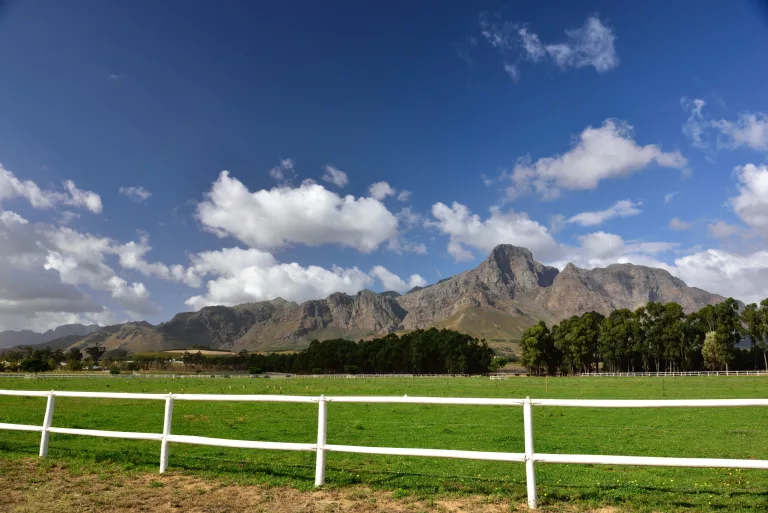
Boschendal/South African Tourism from South Africa/Wikimedia Commons
Boschendal takes a holistic approach to sustainability with a focus on biodiversity, regenerative farming, and water conservation. Their ethical sourcing policies extend beyond the vineyards to all food-related products served on the estate, ensuring a fully responsible farm-to-table experience.
Spier Wine Farm
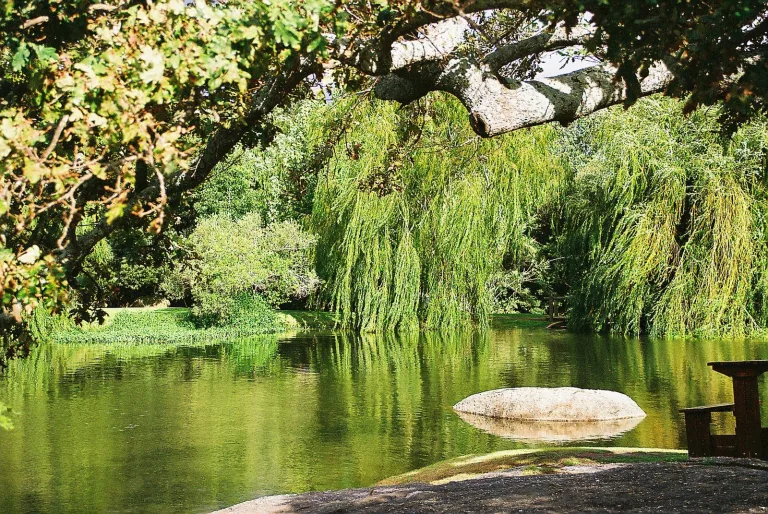
The lake at the Spier Wine Estate/Amanda Gillespie/Wikimedia Commons
A long-time leader in organic farming, Spier has won numerous awards for its water-wise practices and renewable energy use. From solar power installations to advanced wastewater recycling, Spier exemplifies how sustainability and premium winemaking can thrive side by side.
Vergelegen Wine Estate
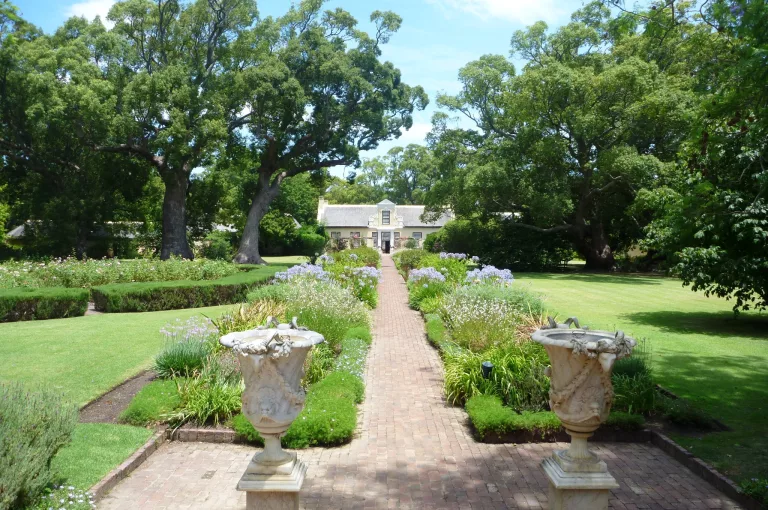
Vergelegen Wine Estate/~ souTH AFRica ~/Wikimedia Commons
Recognised for its rich biodiversity, Vergelegen has received the prestigious Amorim Biodiversity Award. Their conservation initiatives protect native flora and fauna, creating a haven where winemaking and nature flourish in harmony.
Waterford Estate
As a WWF Conservation Champion, Waterford is dedicated to environmental preservation. The estate’s practices prioritise sustainable land management and habitat protection, underscoring a deep commitment to conservation beyond the vineyard gates.
Benguela Cove Lagoon Wine Estate
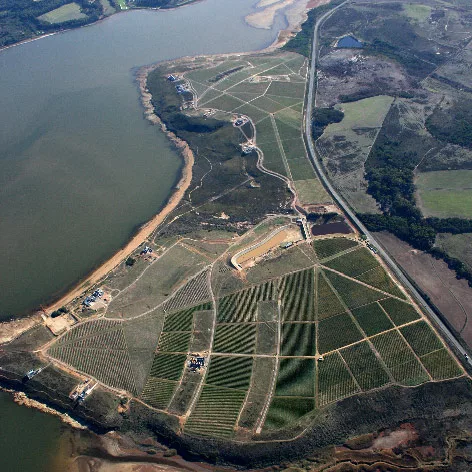
English: Benguela Cove Lagoon Wine Estate Bird’s-eye view/Patrea/Wikimedia Commons
Awarded the African Excellence Award for Best Sustainable Wine Destination, Benguela Cove is also recognised by WWF South Africa for its conservation efforts. Their estate supports threatened species like the Blue Crane and Cape Honeybee, making each visit a unique eco-experience.
Backsberg
Backsberg has the distinction of being South Africa’s first fully verified carbon-neutral winery. They achieve this by offsetting carbon emissions through impactful projects such as the Kuyasa Project in Khayelitsha, linking sustainable wine production with community upliftment.
Paul Clüver Family Wines
Over half of Paul Clüver’s estate is a natural conservancy with official conservation status. The winery actively rehabilitates indigenous vegetation and protects endangered species, exemplifying the deep environmental care integral to their wine.
Groot Constantia
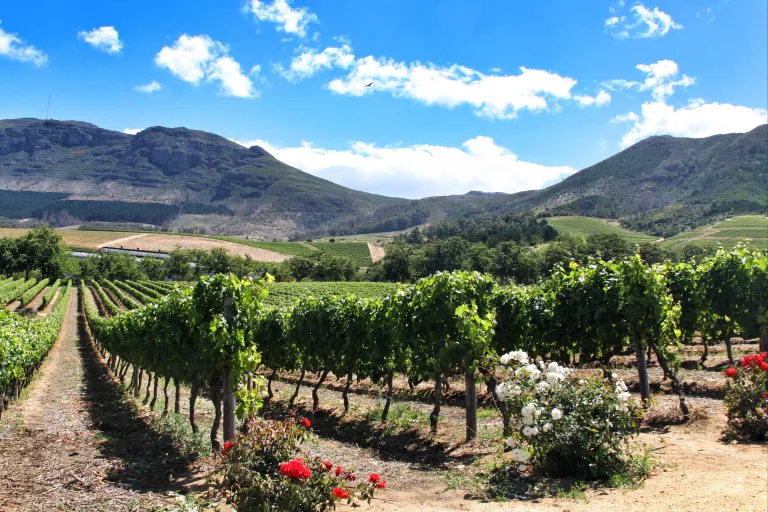
Groot Constantia/Michael Fu/Wikimedia Commons
Committed to a sustainable and equitable future, Groot Constantia aligns its environmental initiatives with WWF South Africa’s benchmarks, continually advancing eco-friendly farming and conservation practices.
Reyneke Wines – Stellenbosch
South Africa’s first certified biodynamic winery, Reyneke, champions a holistic approach to winemaking. Eschewing synthetic chemicals, the vineyard nurtures the land with natural compost, cover crops, and pest control that works in harmony with nature. This biodynamic philosophy ensures the vines thrive within a balanced ecosystem, resulting in wines that truly reflect their terroir. Tastings here aren’t just about sipping—they’re an invitation to connect with the rhythms of the earth.
Waterkloof Wine Estate – Somerset West
Perched dramatically above False Bay, Waterkloof is as committed to sustainability as it is to style. The estate operates entirely organically, using gravity-flow winemaking methods that reduce energy consumption. Their restaurant sources seasonal produce directly from estate gardens, offering a fresh and sustainable dining experience against the backdrop of sweeping ocean views.
Springfield Estate – Robertson
Known for its terroir-driven wines, Springfield Estate pairs quality with conscious water management. In the semi-arid Robertson region, every drop counts. The estate employs minimal irrigation, carefully managing soil health to retain moisture and encourage natural rainfall reliance. These efforts help preserve fragile water resources while delivering wines that mirror the character of their environment.
Creation Wines – Hemel-en-Aarde Valley
Cool-climate elegance meets sustainability at Creation Wines. Powered largely by solar energy, the estate runs a robust recycling programme that keeps waste to a minimum. Their sustainable food-and-wine pairings spotlight locally sourced and ethically produced ingredients, crafting an experience that’s as mindful as it is delicious. Creation Wines’ green ethos goes far beyond solar power. The estate champions water conservation through drip irrigation, efficient cleaning systems, and careful consumption monitoring. As a WWF-SA Conservation Champion, they also follow Integrated Production of Wine and EnviroWines standards, ensuring every drop—wine or water—is sustainably managed.
Black Elephant Vintners – Franschhoek
Boutique winery Black Elephant Vintners proves that even small producers can lead big change. Their eco-conscious initiatives include using recycled packaging materials, limiting single-use plastics, and sourcing from organic vineyards. Adding a creative flair, the estate hosts music-themed wine tastings, infusing culture and conservation into every visit.
Plan your own green wine route
Many of these estates form part of larger wine regions like Stellenbosch, Robertson, and the Hemel-en-Aarde Valley – perfect for a sustainable road trip. To reduce your travel footprint, consider cycling between estates or opting for electric vehicles. These greener travel choices add a layer of eco-responsibility to an already conscientious journey.
Also read:
5 wine farms with hikes and tastings
Source: Lee-Ann Steyn / Getaway

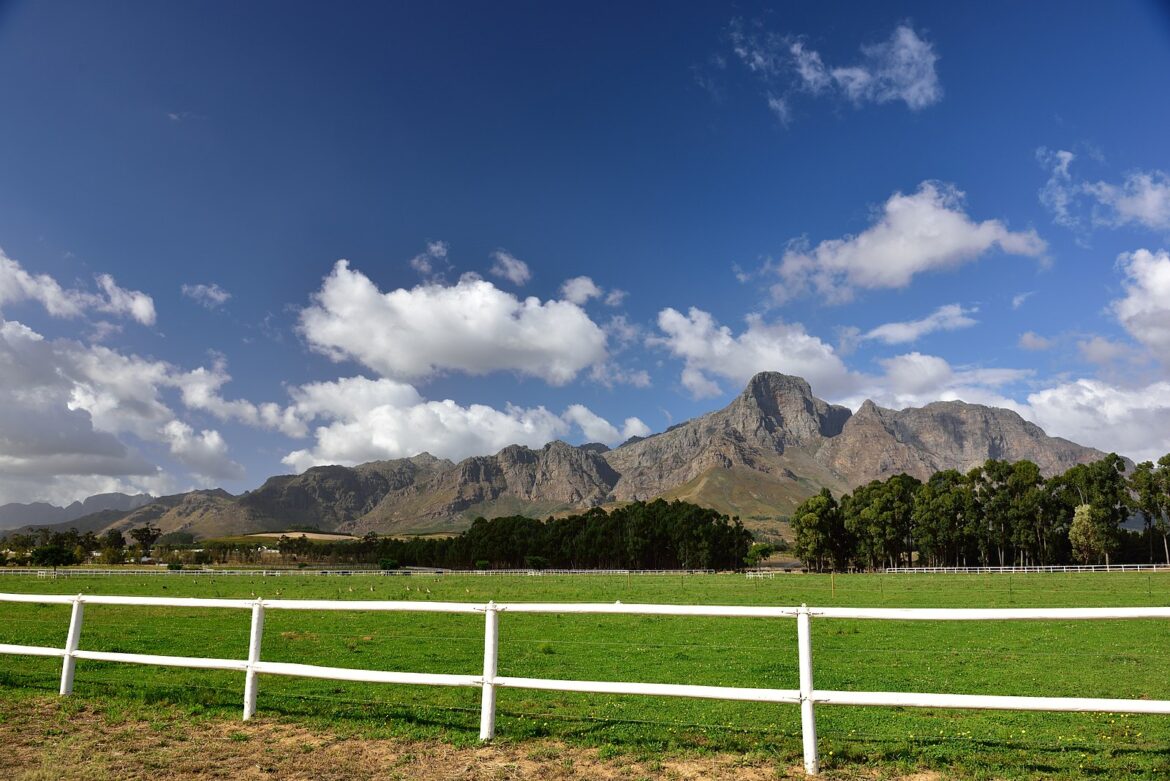
Dining and Cooking